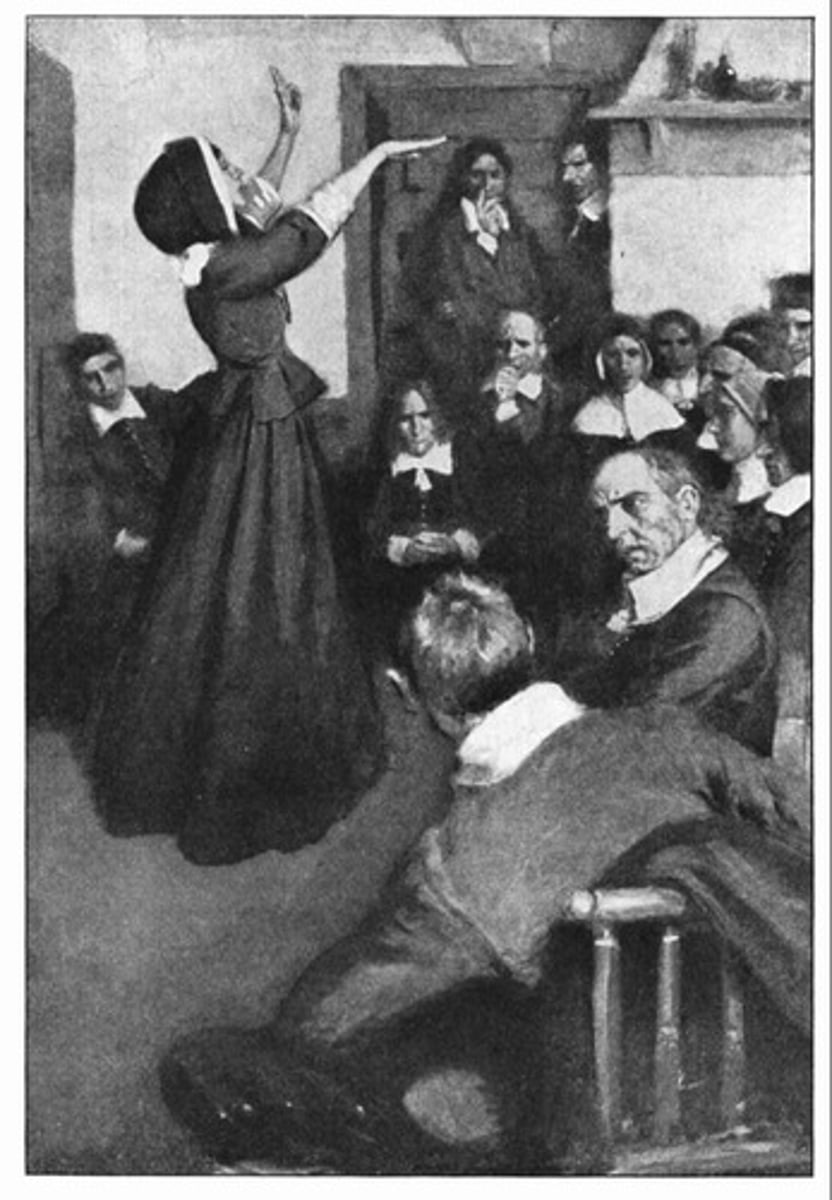Chapter 2: Europeans Colonize North America (1600-1650)
1/40
There's no tags or description
Looks like no tags are added yet.
Name | Mastery | Learn | Test | Matching | Spaced | Call with Kai |
|---|
No analytics yet
Send a link to your students to track their progress
41 Terms
Captain William Rudyerd
(1632) Captian William Rudyerd was appointed master general of the English colony on Providence Island (North of Panama, down south of Cuba) isolated from other colonies. Rudyerd's personality was violent and he often quarreled other settlers, he demanded respect since he was born of English nobility and once beat a servant to death because he mistook an illness for laziness. He also had an antagonist Reverend Lewis Morgan whom the captain argued about religious aspects of the church.
Pedro Menedez de Aviles
(1519-1574) was a Spanish seaman and colonizer. Among the most renowned seamen of his time, he founded St. Augustine, the first permanent white settlement in what is now the United States.
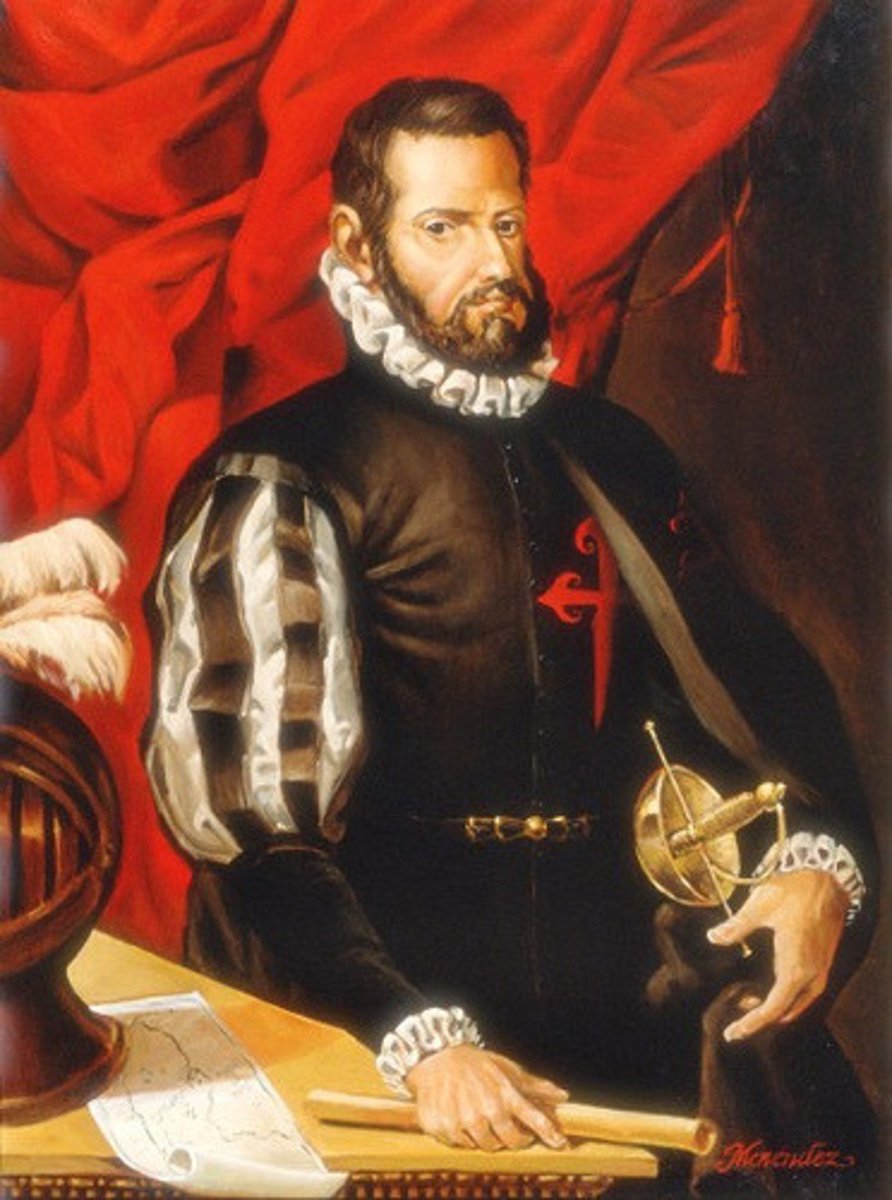
Juan de Onate
Spanish conquistador who, in 1598, took control of the Rio Grande region and the Pueblo region of what is now New Mexico for Spain. A few of his settlers were killed by the natives and in response he led a massacre of over 1,000 natives which led to the loss of culture and continued mistreatment of natives
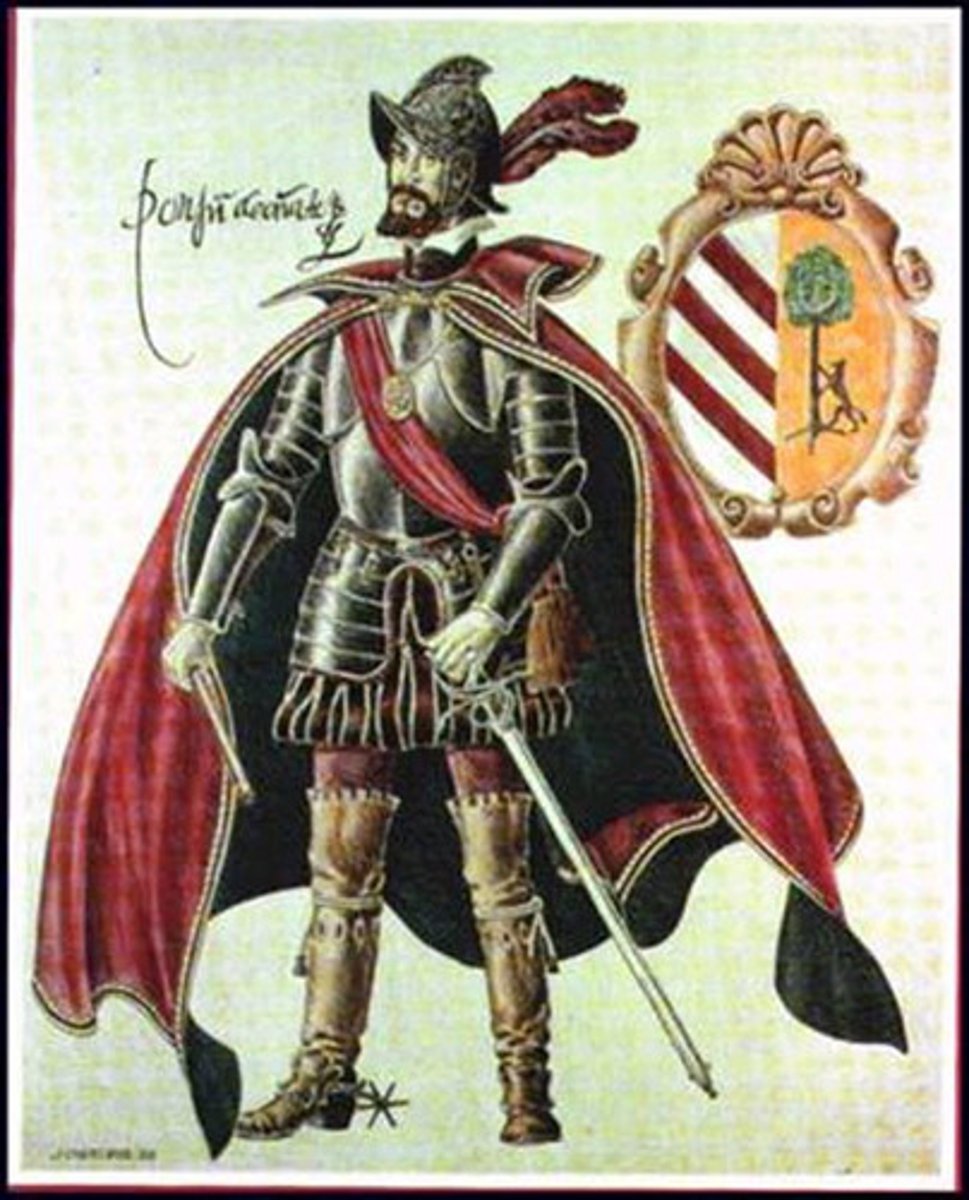
Quebec and Montreal
Jacques Cartier became the first European to reach the area now known as Montreal in 1535 while in search of a passage to Asia during the Age of Exploration.
Quebec City was founded in 1608 by Samuel de Champlain. Quebec was the first to be meant as a permanent settlement and not a simple trading post
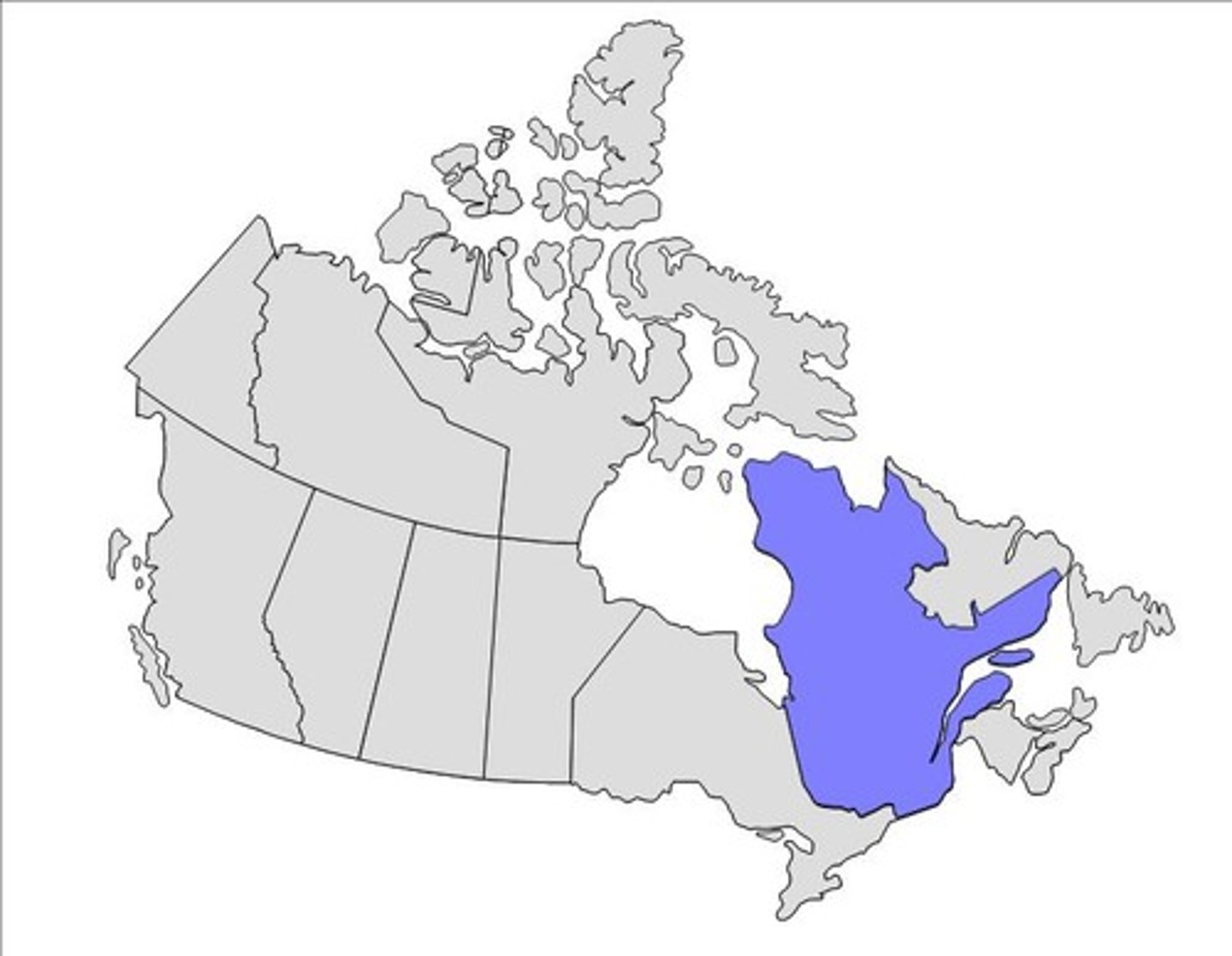
The Black Robes
term northern Native Americans used for the Jesuits because of the Jesuit's distinctive garb
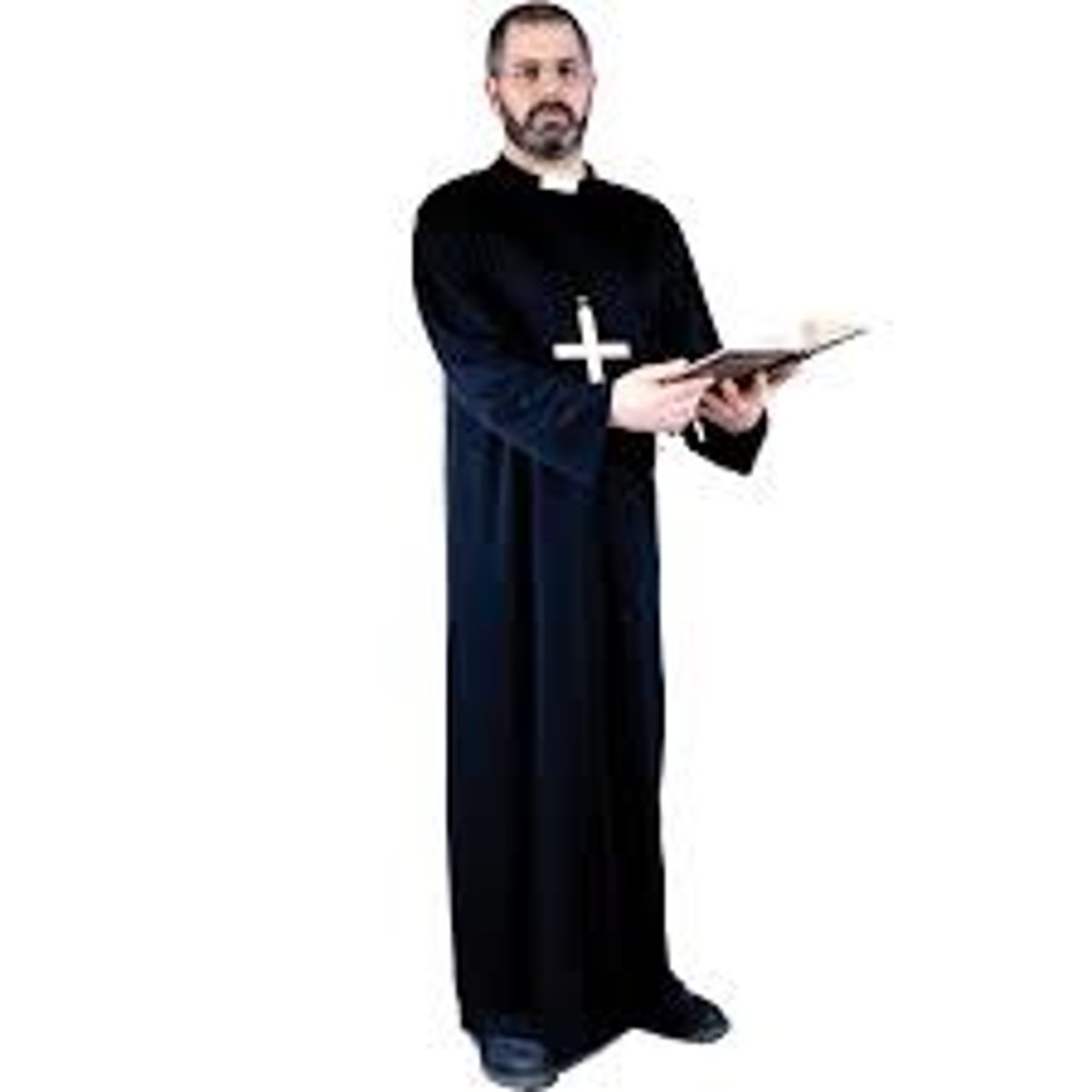
New Netherland
A colony founded in 1624 by the Dutch in the New World along the Hudson and lower Delaware rivers although the colony centered in New Amsterdam. It became New York.
Iroquois-Huron War
The French and Iroquois Wars, which were fought from 1642 to 1698 were various battles that came about because the Iroquois tribe wanting to expand their territory. They were seeking to serve as middlemen between other Native American tribes and the French in order to facilitate the fur trade in the area.
A. War waged by the Iroquois people in an attempt to rid the area of the Iroquois' rival tribe. The Huron already weak from Smallpox were decimated by the Iroquois armed with Dutch guns.
B. Helped establish the Iroquois people as the sole tribe responsible for trade and diplomacy with the European settlers.
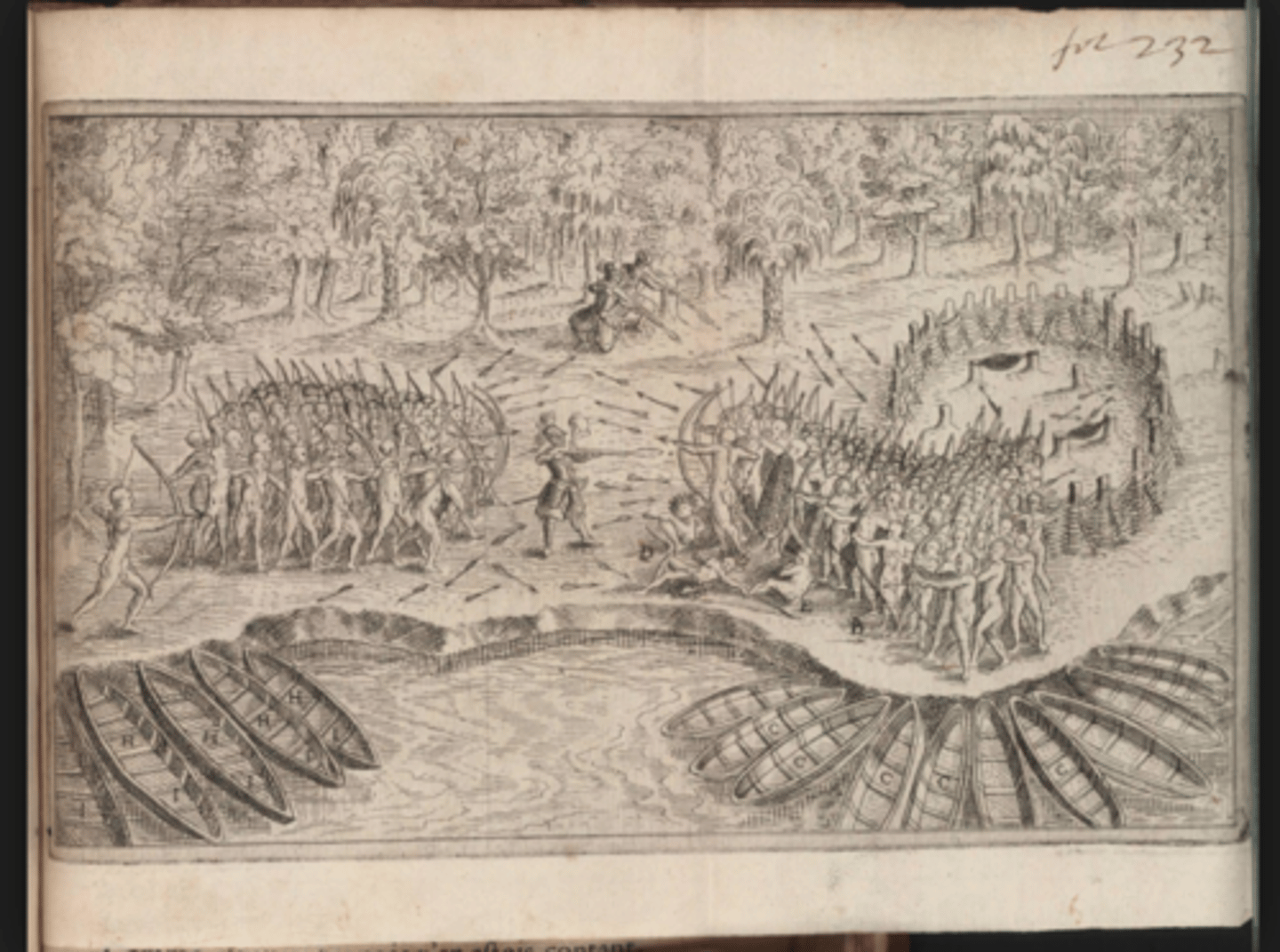
Greater Antilles
The four large Caribbean islands of Cuba, Jamaica, Hispaniola, and Puerto Rico.
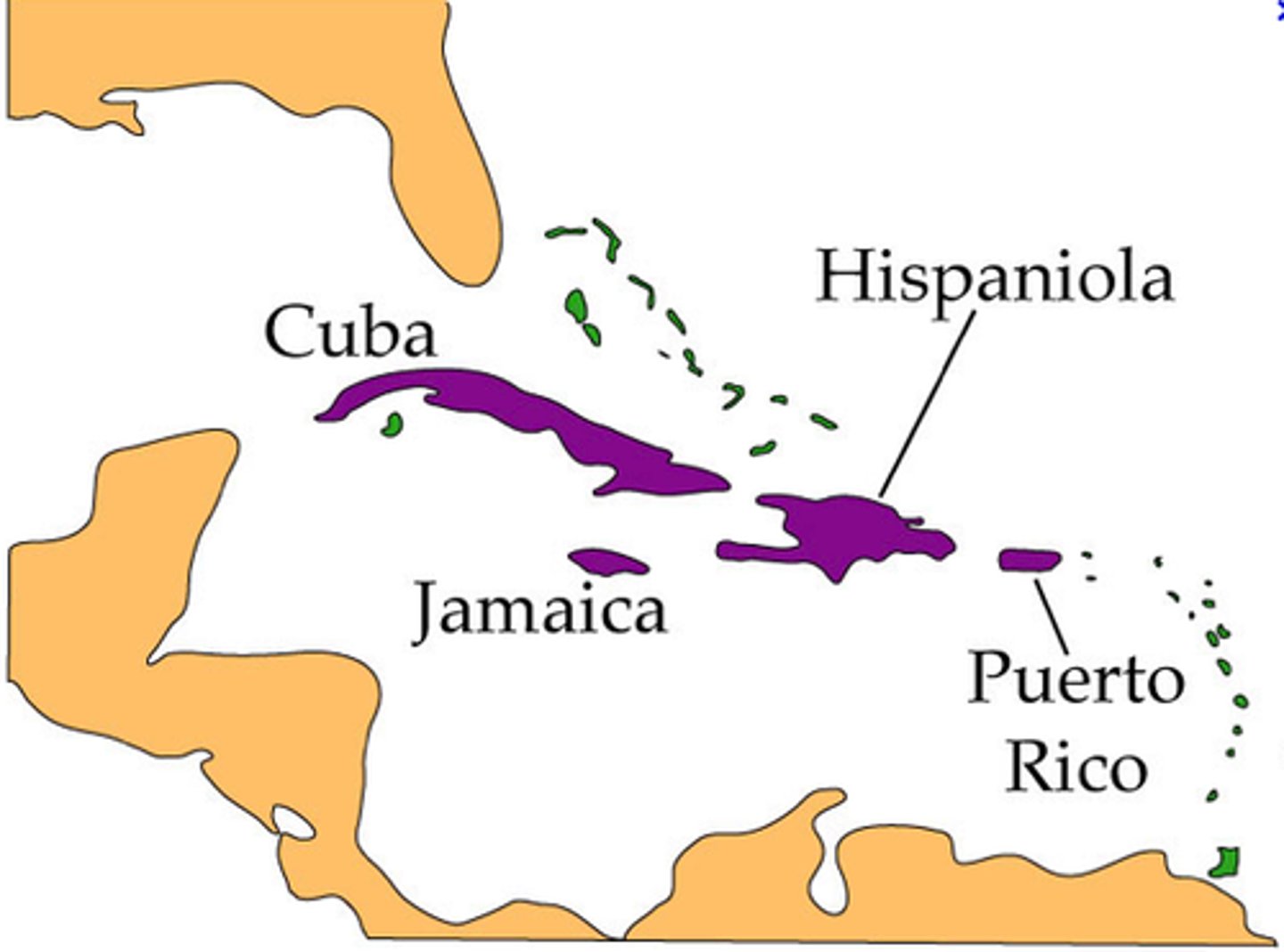
Lesser Antilles
The arc of small Caribbean islands from St. Maarten to Trinidad. Group of islands that extend from the Virgin Islands to Trinidad and Tobago
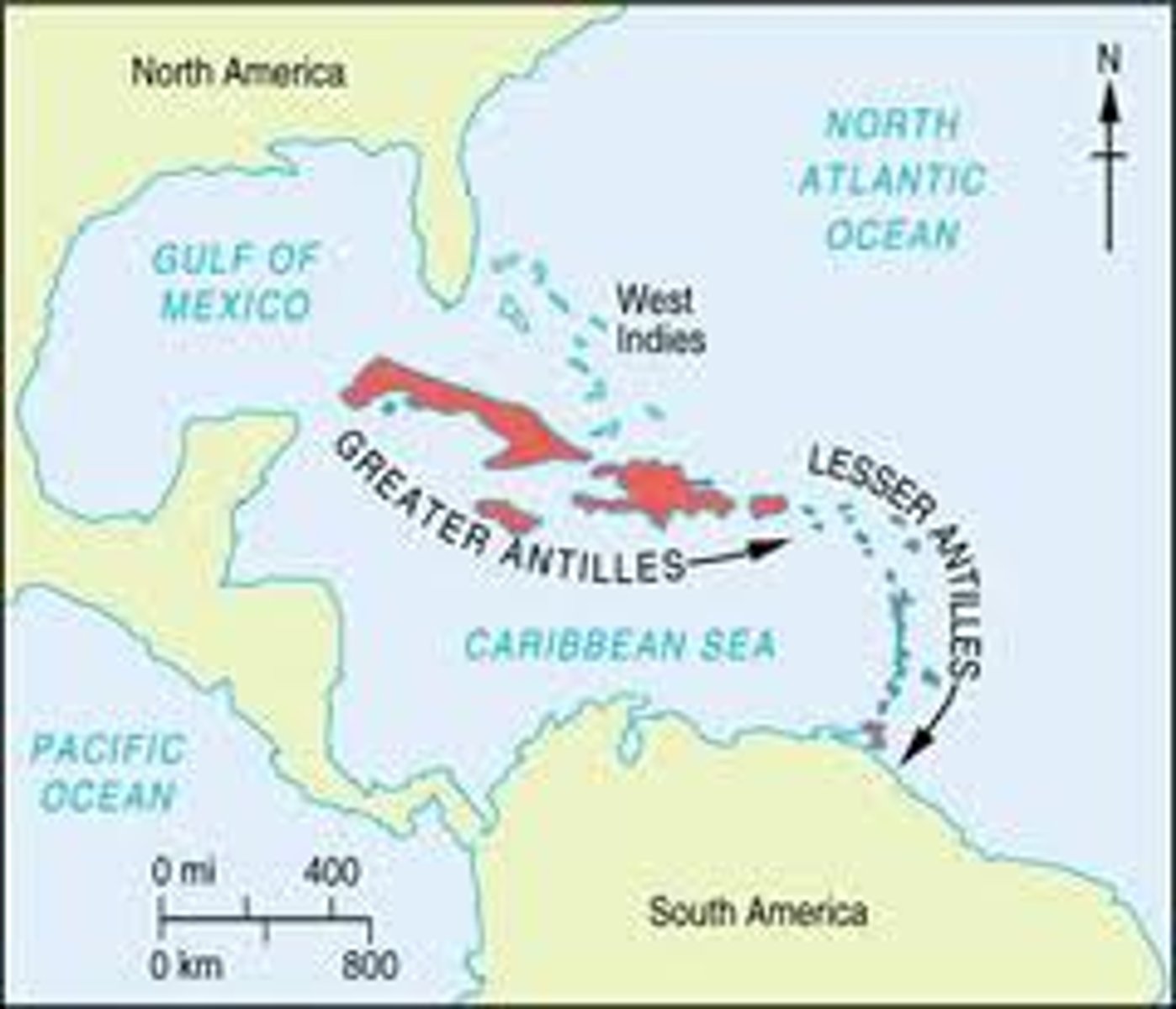
English population boom
Due to improved nutrition, 150 years after 1530, England's population doubled. More people competed for food, clothing, and other goods leading to inflation. Wages fell as labor force grew. Overcrowding in London resulted, with people on the streets. It had more than tripled in size to 375,000 by 1650. Officials concluded that colonies established in North America could siphon off England's "surplus population." Those seeking better opportunities emigrated. Similarly attracted were younger sons of gentlemen who were excluded from inheriting land by wealthy families' proactive of primogeniture, which reserved all real estate for the eldest son.
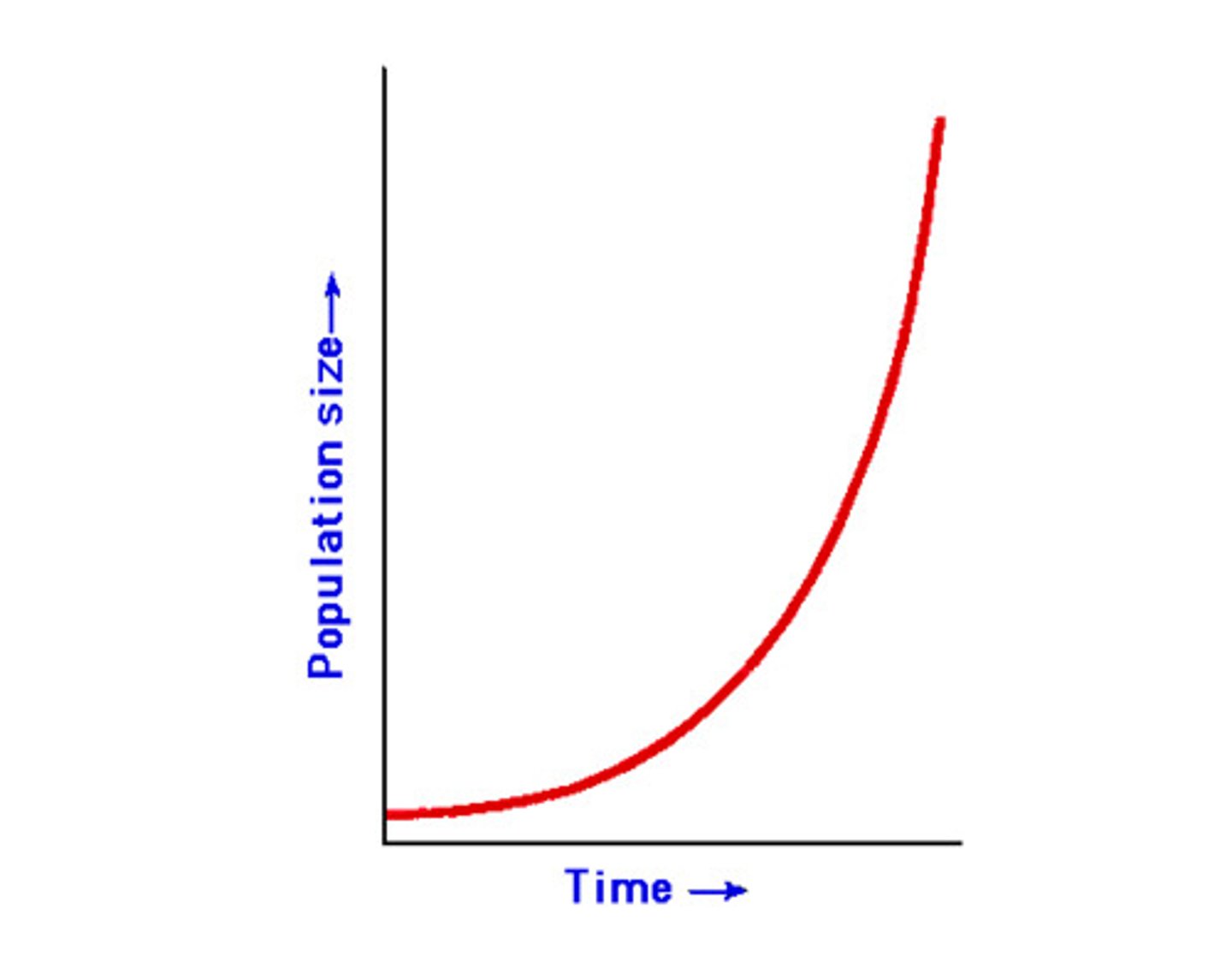
Henry VIII
(1491-1547) King of England from 1509 to 1547; his desire to annul his marriage led to a conflict with the pope, England's break with the Roman Catholic Church, and its embrace of Protestantism. Henry established the Church of England in 1532.
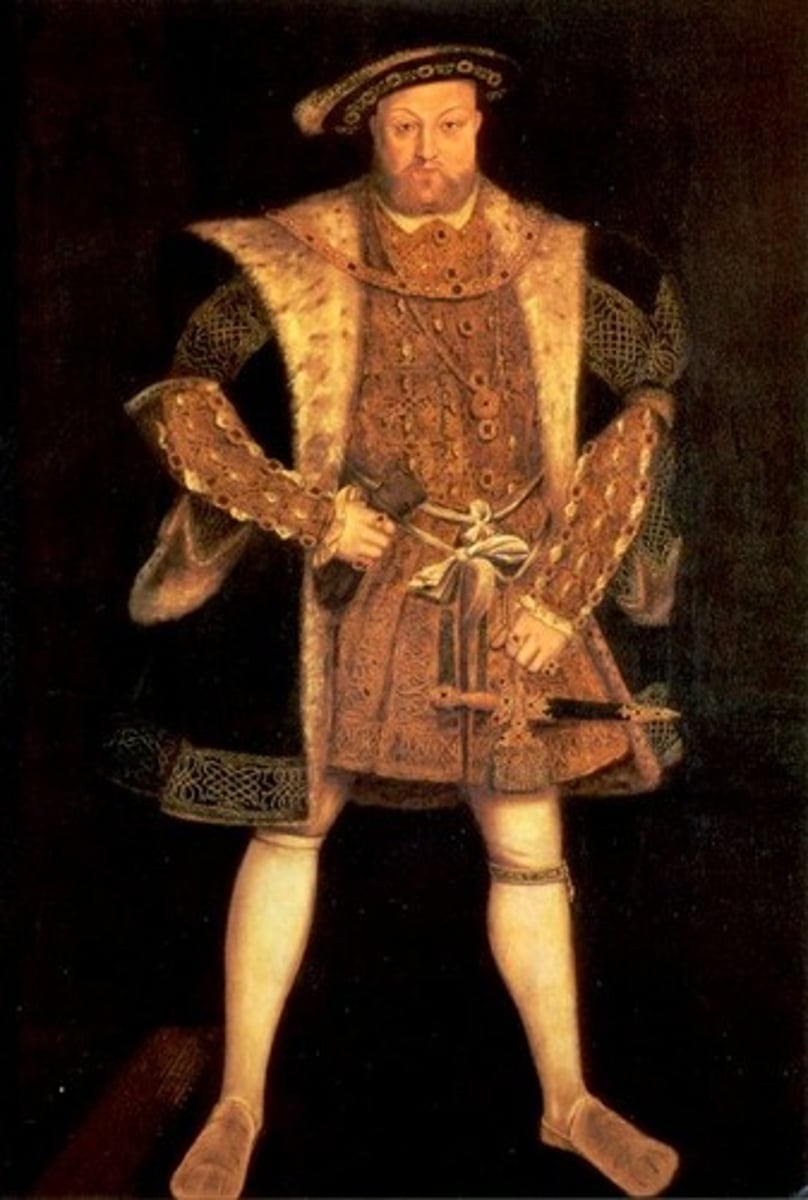
Martin Luther and John Calvin
As Martin Luther's successor as the preeminent Protestant theologian, Calvin was known for an intellectual, unemotional approach to faith that provided Protestantism's theological underpinnings, whereas Luther brought passion and populism to his religious cause
Doctrine of predestination
Joint-stock companies
Virginia Company
Jamestown
Captain John Smith
Starving time
Thomas Mayhew
Tobacco cultivation
Headright system
House of Burgesses
Opechancanough
Maryland
Cecelius Calvert
Indentured servitude
"seasoning process"
Chesapeake families
Separatists
Plymouth
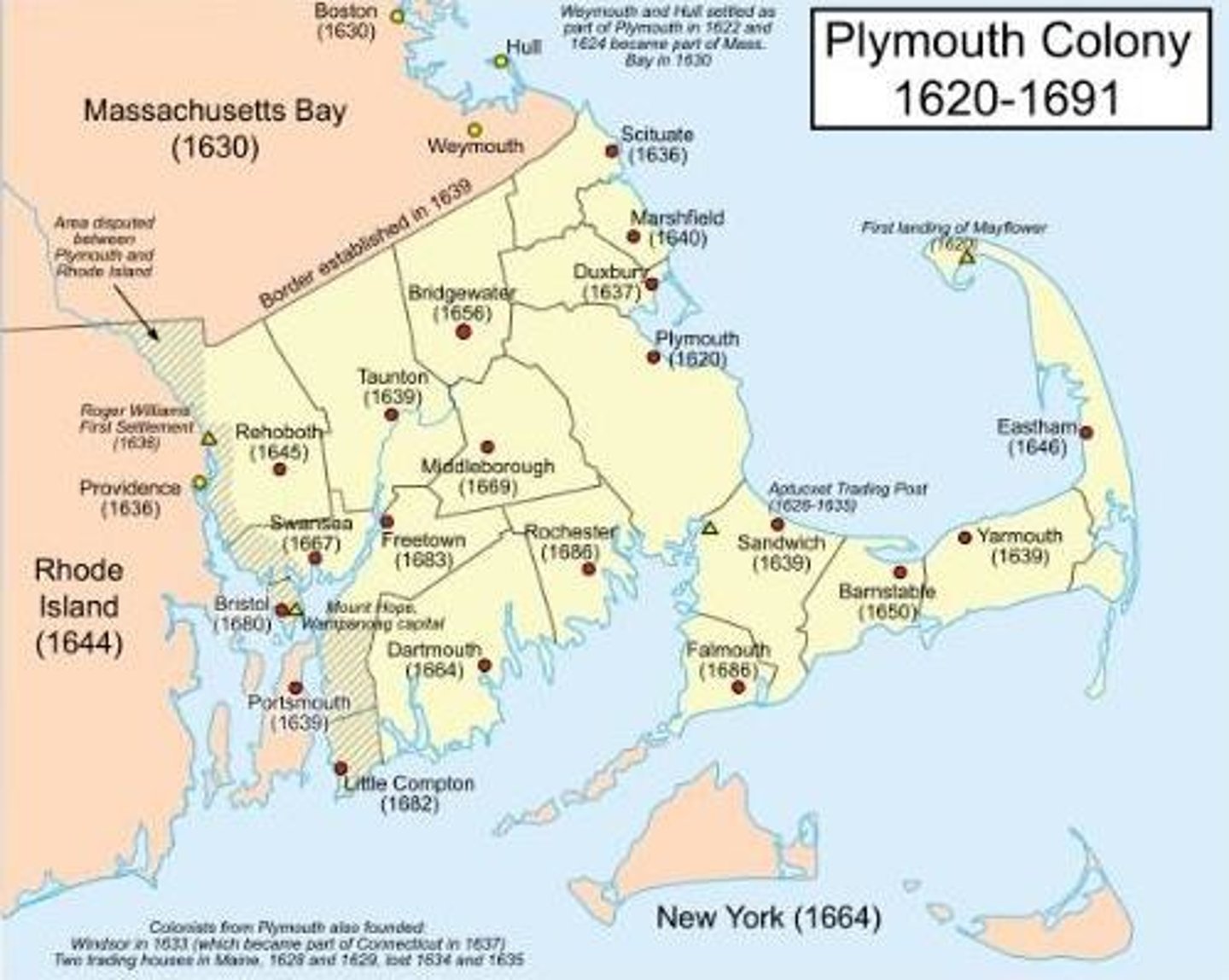
Massasoit and Squanto
Puritan Congregationalists
Massachusetts Bay Company
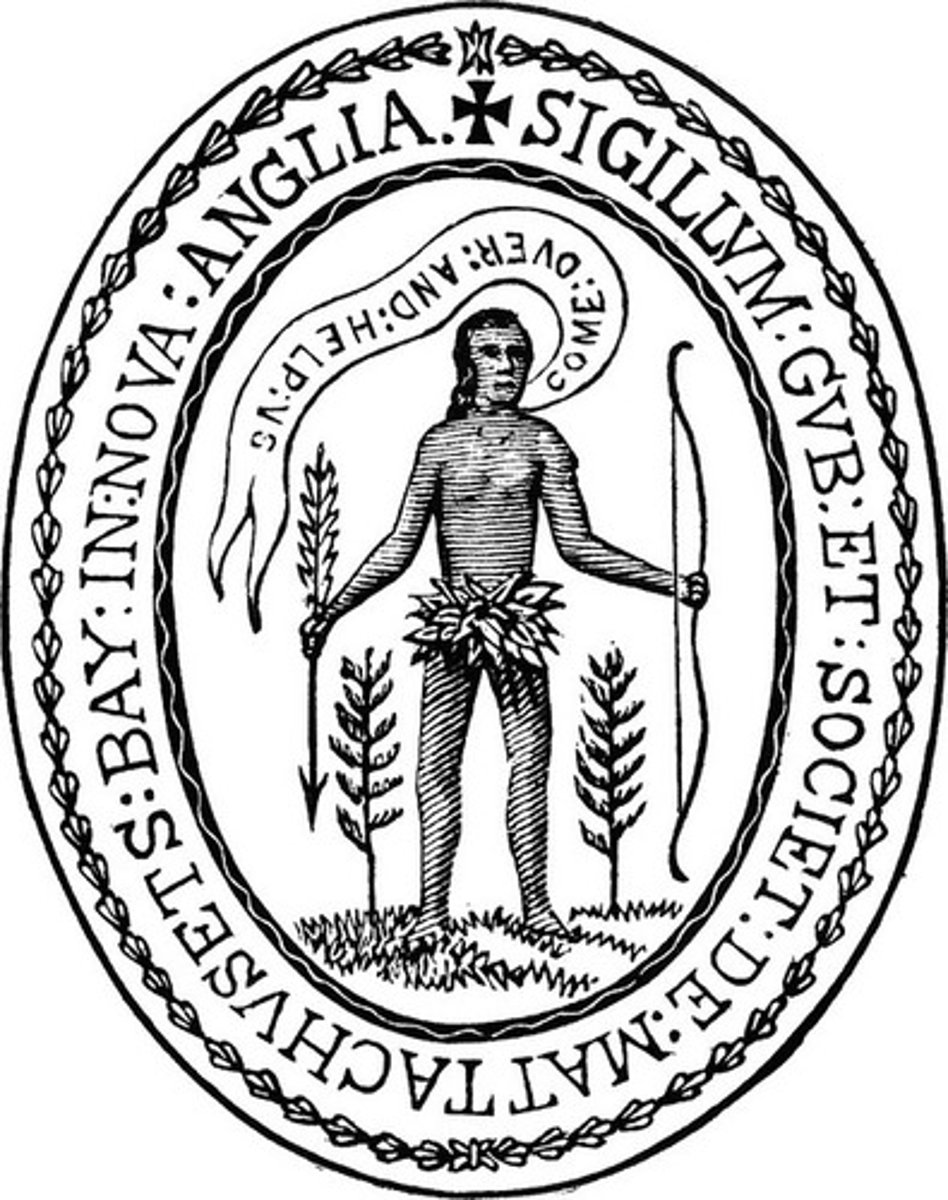
John Winthrop

Doctrine of the covenant
Communal land-grant system of Massachusetts
Pequot War
The Pequot War was fought between the Pequot Indians and English colonists of Massachusetts Bay, Connecticut and Plymouth colonies. Fighting along with the English colonists were their Indian allies from the Narragansett and Mohegan tribes. Battles in the war began in 1636 and continued until the Treaty of Hartford was signed in 1638. Major battles occurred along the Mystic River in southeastern Connecticut. Although the colonists claimed the war started in retaliation for the deaths of fellow colonists, the causes of the conflict were rooted in more complex issues, namely disputes between colonists and Native tribes over land and domination of trade.
1637 Conflict between English settlers and Pequot Indians over control of land and trade in eastern Connecticut.
The Bay colonists wanted to claim Connecticut for themselves but it belonged to the Pequot. The colonists burned down their village and 500-700 Pequot Indians were killed.
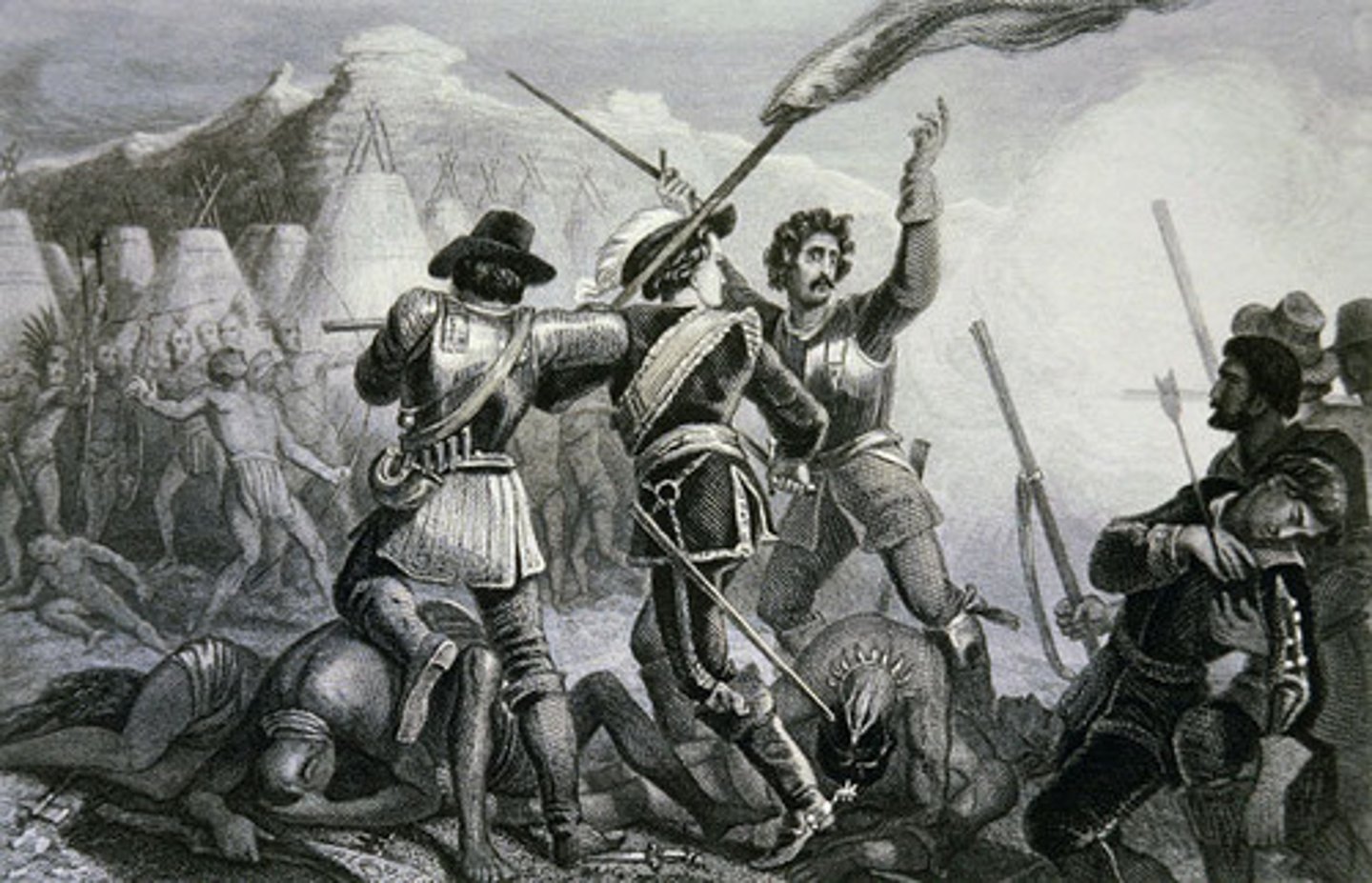
John Eliot
John Eliot ( 1604—1690) was a Puritan missionary to the American Indians who some called "the apostle to the Indians" and the founder of Roxbury Latin School in the Massachusetts Bay Colony in 1645. He translated the Bible into the language of the Massachusetts Indians
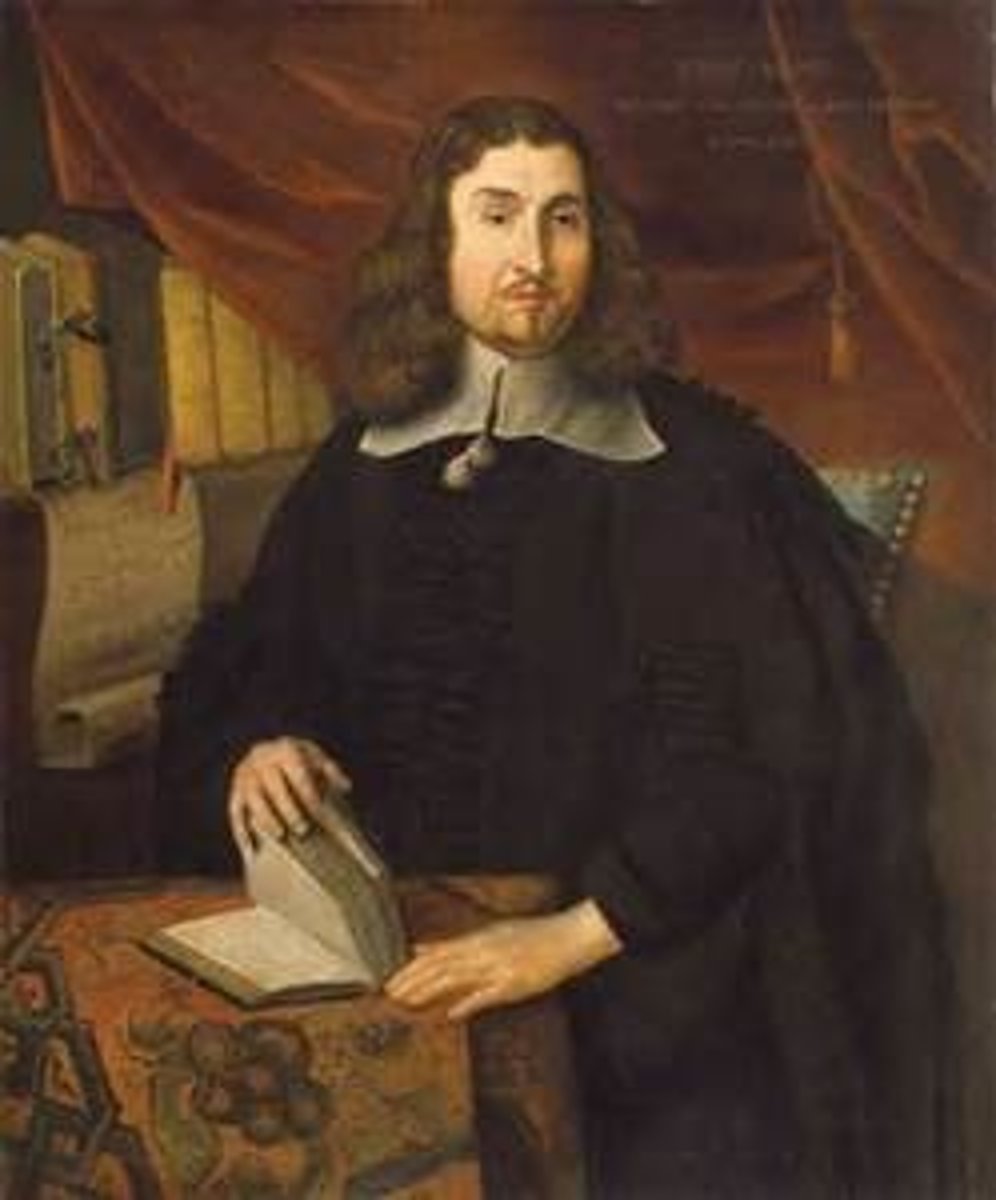
Criminal codes of conduct in Puritan New England
Roger Williams
Roger Williams was a Separatist leader and the founder of the colony of Providence Plantations, which became Rhode Island. He is best remembered for his advocacy of religious freedom and separation of church and state.
Roger Williams was born in England and in 1630 declared himself a Separatist after coming to believe that the Church of England was corrupt. Shortly afterward, he traveled to America and settled in Massachusetts. Once there, he formed close relationships with the local Native American tribes as he learned about their languages and customs. He grew ardent beliefs of Separatism, as well as the separation of church and state. Additionally, he came to question the legality and morality of chartering land belonging to Native Americans and advocated for purchasing land directly from the tribes.
Williams's religious and political beliefs brought him the wrath of Puritan leaders, and in 1635, he was convicted of sedition and heresy and banished from Massachusetts. He fled into the wilderness beyond Massachusetts. He purchased land from the Narragansett, founding the settlement of Providence, which was ruled by the concepts of democracy and separation of church and state. The settlement grew in the ensuing years, and Rhode Island became a haven for those who had been exiled or disenfranchised from other colonies.
A dissenter who clashed with the Massachusetts Puritans over separation of church and state and was banished in 1636, after which he founded the colony of Rhode Island to the south
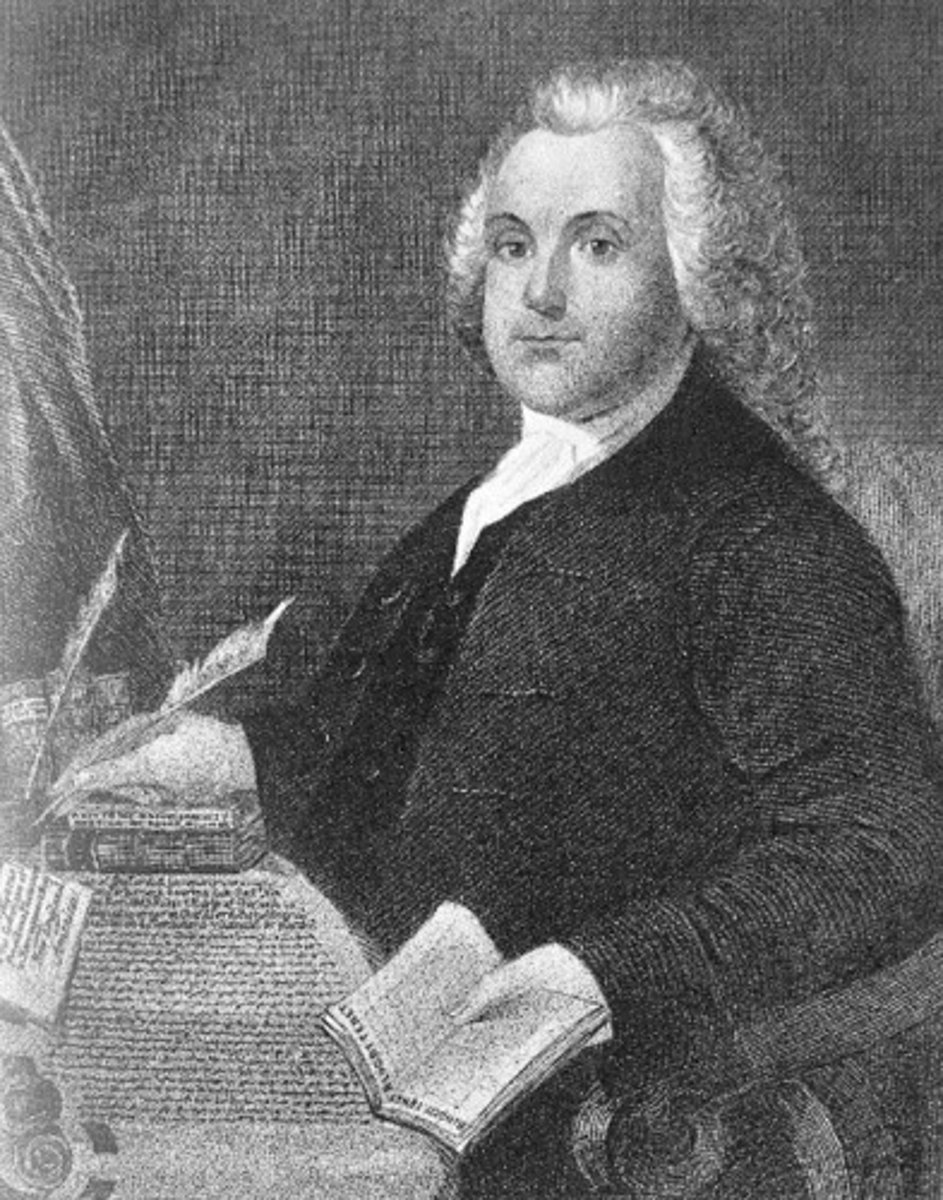
Anne Marbury Hutchinson
Anne Hutchinson (1591-1643) was a Puritan who organized and led meetings to discuss the weekly sermons. The meetings became popular, and many leading citizens of the Massachusetts Bay Colony attended them.
Anne was outspoken about her belief in predestination and being saved by grace alone. Because of this, she thought that it really didn't matter what people did from day-to-day. Also, she spoke out about receiving personal revelation rather than waiting to hear from the ministers, which was heresy at the time.
She emphasized the covenant of grace and direct communication with God. Her ideas threatened the Puritan religion. She was banished from Massachusetts Bay Colony in 1638 and founded a settlement in Rhode Island. Anne Hutchinson contributed to the idea of separation of church and state in the U.S. Constitution.
